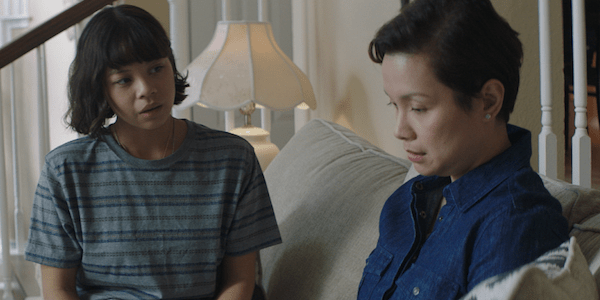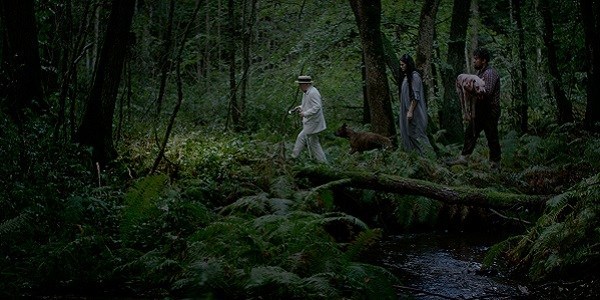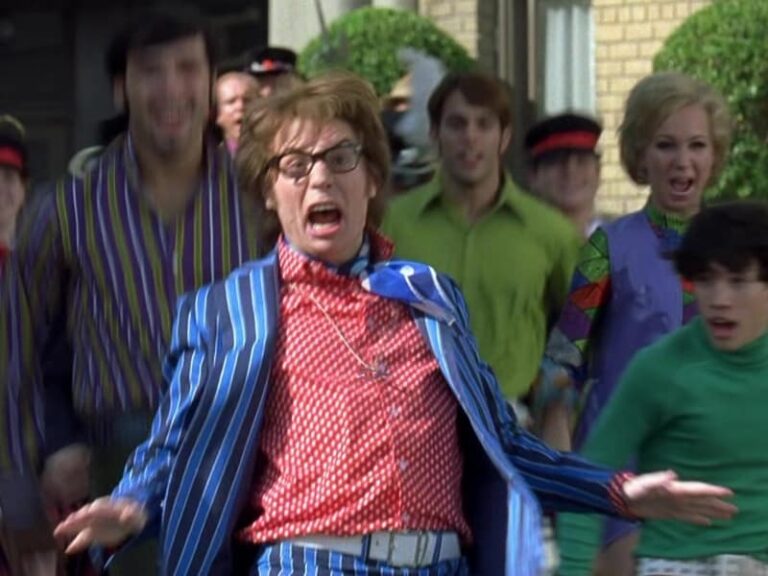YELLOW ROSE: Country Colors All Kinds of Experiences
When I first learned about Japanese country singer Tomi Fujiyama, I marveled. Here was a young Japanese woman who took the American country music scene by storm, including performances at the Grand Old Opry. But like so many others, I probably wondered how her love of American music came about.
It just illustrates the way we conveniently try to categorize people, when in reality, our individual affinities are not as cut-and-dry as other people make out. Oftentimes the only prerequisite for something to touch us is that it makes us feel — it moves us — speaking some truth into our own experience. This is experience regardless of geography or the color of our skin.
Because many times “East” and “West” are not as mutually exclusive as the predominant cultural norms suggest. It’s part of what makes us more interesting as individuals, and it’s part of the immediate draw of Yellow Rose.
Its title is a pun. My mind leaped immediately to “The Yellow Rose of Texas.” Not only is it a storied tune but also a Roy Rogers western I grew up watching innumerable times. For Rose Garcia (Eva Noblezada), a young Filipino teenager, it’s also what the kids at school called her after she performed country music at a talent show. It acts as a throwaway bit of exposition, but their intent is made plain. She doesn’t conform to their expectations. But she shouldn’t have to.
Again, there’s no limiting what will capture our imagination, only the fact that it does. She’s quick to put Patsy Cline‘s “Crazy” on the record player. She confesses to the cute boy in the music shop, Elliot, that Townes Van Zandt — featured prominently on her notebook — is like her “spirit-god.”As a budding songwriter, she pens a number called “Square Peg, Round Hole” and if that doesn’t capture her experience, then nothing does. Whatever anyone else says, Texas is her home.
Square Peg, Round Hole
She lives a humble life with her conservative single mother. Her father is dead, and she breaks up the monotony of schoolwork by pulling out her guitar and expressing herself. There’s the hint of young love as Elliot invites her out to an evening in Austin — this is her first time ever going to the big city — and she successfully pleads her case to mom.

It doesn’t disappoint as they take in the Broken Spoke where the mood is lax and the music is alive and well with all that country music has to offer. Rose takes it all in with an appreciative candor. She’s on her way, in her element, with someone who cares for her, and they get to see Dale Watson. (The famed country singer provides something a bit more substantial than a celebrity cameo.)
The only question remains, where is the story taking us? They say you’re allowed one coincidence in a film, but this one happens at the most crucial moment. As Elliot drives Rose home after a late-night without incident, at the very same time, Mrs. Garcia finds her hotel room raided by Immigration and Customs Enforcement (ICE). It’s a sting, and they are looking to take in the latest batch of undocumented immigrants.
A Suspect Tone
Suddenly, Rose’s life is thrown into instant upheaval, and we have a totally different movie. We should definitely commend Diane Paragas for wanting to make this film — an undocumented story certainly is an exercise in empathy — though it isn’t quite the story we looked to be signing on for.
My main reservation is that the story starts to become tonally suspect, relying on this ever swinging pendulum of emotions. It’s not able to modulate much less navigate its way between the disparate elements now laid out. The leap isn’t too far, between a Filipino teenager coming of age with country music and the dissolution of a family of undocumented people, but they never settle into a totally believable equilibrium.
Many of the people Rose meets along the way are normal and decent, willing to go out of their way for her. Take Elliot or even Dale; they seem perfectly poised to be there when Rose needs them, though they fall away just long enough to sting our heroine. There are these isolated moments that we can pick up on as the movie succumbs to the throes of drama. There’s no nuance about it.
Likewise, for all the benevolent helpers along the way including Elliot’s cousin, who is a defense attorney, and Rose’s conflicted aunt (Lea Salonga), there are a select few who verge perilously on the edge of faceless cinematic evil. They are easy targets, and they never feel like they have validity.

In the interim, the performances are winsome and the music is agreeable — the heart of the movie is in the right place — all of these are worthwhile ambitions. In fact, the themes are right there to be had. It becomes extremely evident that at its best, country music is a living paradox of upbeat heartbreak. You have the despondency and brokenness gleaned from lyrics nevertheless buoyed and supplied life by a steel guitar. What better way to capture not only Rose’s passion but her personal angst as part of the undocumented population?
Final Thoughts: Yellow Rose
Most of these are ideas we have to tie together for ourselves. They never quite get the full dialogue they deserve. It’s a shame because Eva Noblezada does a wonderful job carrying the picture, both through her performance in front of the camera and behind the mic. She’s a talent, and the promised culture clash she faces is ripe with so many fascinating possibilities. There’s so much to be said, and yet we settle into a story that sometimes takes the easier road if not the obvious one.
If any of these observations sound harsh, it’s because I held Yellow Rose to such high standards. With such a stellar and thoughtful premise, much was to be expected, and I don’t think this is a bad thing. In the end, we can be thankful for the bits of honest and exuberant humanity we receive, while still filling in the rest of the movie for ourselves. That’s almost good enough.
Why do you think classic country music is so popular? Please let us know in the comments below!
Yellow Rose was released in theaters on October 9, 2020.
Watch Yellow Rose
Does content like this matter to you?
Become a Member and support film journalism. Unlock access to all of Film Inquiry`s great articles. Join a community of like-minded readers who are passionate about cinema – get access to our private members Network, give back to independent filmmakers, and more.
Join now!





